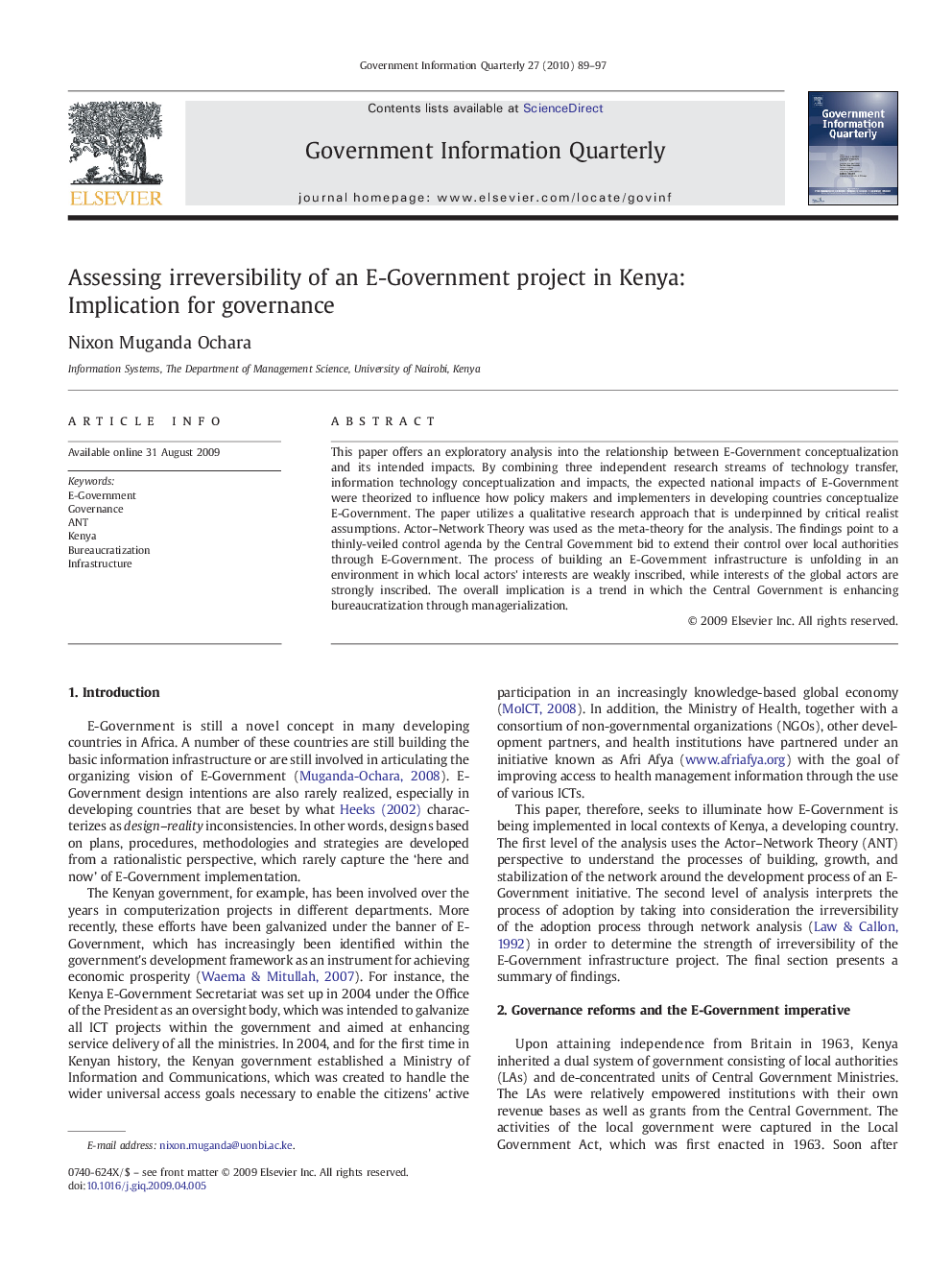| کد مقاله | کد نشریه | سال انتشار | مقاله انگلیسی | نسخه تمام متن |
|---|---|---|---|---|
| 1024719 | 941764 | 2010 | 9 صفحه PDF | دانلود رایگان |

This paper offers an exploratory analysis into the relationship between E-Government conceptualization and its intended impacts. By combining three independent research streams of technology transfer, information technology conceptualization and impacts, the expected national impacts of E-Government were theorized to influence how policy makers and implementers in developing countries conceptualize E-Government. The paper utilizes a qualitative research approach that is underpinned by critical realist assumptions. Actor–Network Theory was used as the meta-theory for the analysis. The findings point to a thinly-veiled control agenda by the Central Government bid to extend their control over local authorities through E-Government. The process of building an E-Government infrastructure is unfolding in an environment in which local actors' interests are weakly inscribed, while interests of the global actors are strongly inscribed. The overall implication is a trend in which the Central Government is enhancing bureaucratization through managerialization.
Journal: Government Information Quarterly - Volume 27, Issue 1, January 2010, Pages 89–97